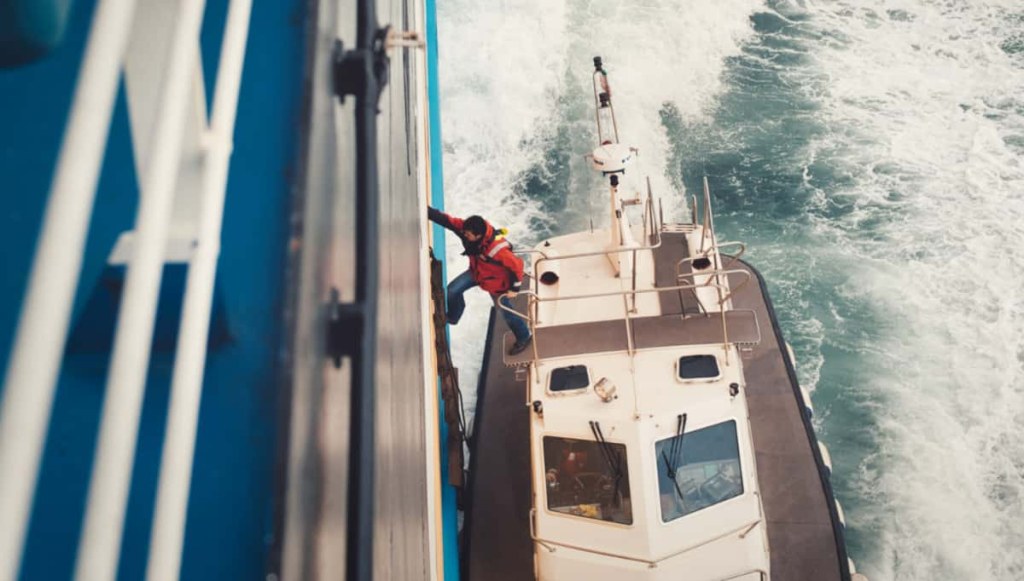What Does a Pilot Boat Do for a Cruise Ship?
Introduction
Dear cruise ship aficionado,
Welcome to a fascinating insight into the world of pilot boats and their crucial role in ensuring a safe and efficient journey for cruise ships. In this article, we will explore the purpose and function of pilot boats, the individuals who operate them, the timing and locations of their operations, and the advantages and disadvantages they bring. By the end, you will have a comprehensive understanding of what a pilot boat does for a cruise ship.

Image Source: cruisehive.com
So, let’s dive in and discover the hidden heroes of the sea!
What Does a Pilot Boat Do?
🚢 A pilot boat serves as a crucial link between a port and a cruise ship, facilitating safe navigation through challenging waters. Pilots, who are experienced mariners, board the cruise ship from a pilot boat to provide local knowledge and expertise to the ship’s crew. They guide the vessel through narrow channels, congested ports, and hazardous conditions to ensure a smooth and secure journey.
Who Operates Pilot Boats?
🚢 Pilot boats are operated by skilled and certified marine pilots who have extensive knowledge of the local waters. They are often employed by port authorities or independent pilotage organizations. These pilots undergo rigorous training, including navigation and ship handling techniques, to ensure they can safely navigate ships in various conditions.
When Do Pilot Boats Operate?
🚢 Pilot boats operate whenever a cruise ship requires assistance in navigating through challenging waters. The timing of their operations depends on several factors, such as tides, weather conditions, and port regulations. Typically, pilots board cruise ships shortly before entering port and disembark once the ship is safely moored.
Where Do Pilot Boats Operate?
🚢 Pilot boats can be found in ports and harbors worldwide. Their services are particularly crucial in regions with complex navigational challenges, such as narrow channels, shallow waters, or strong currents. Popular cruise destinations like Alaska, the Mediterranean, and the Caribbean often require pilot boat assistance due to their unique geography.
Why Are Pilot Boats Necessary?
🚢 Pilot boats are necessary for several reasons. Firstly, they provide a local pilot’s expertise, who is familiar with the specific port and its surrounding waters. This knowledge helps navigate through tricky areas and avoid potential hazards. Secondly, pilot boats offer an additional layer of safety by having experienced pilots on board, ready to take control if any unforeseen circumstances arise. Lastly, pilot boats ensure the efficient and timely entry and exit of cruise ships from ports, minimizing delays and congestion.
How Do Pilot Boats Operate?
🚢 Pilot boats operate by approaching the cruise ship and safely transferring the pilot on board using ladders, gangways, or pilot hoists. The pilot then collaborates with the ship’s captain and crew, communicating vital information about navigational challenges, local regulations, and potential hazards. Once the ship reaches its destination, the pilot disembarks from the cruise ship back onto the pilot boat.
Pros and Cons of Pilot Boats
Pros:
👍 Enhanced safety for cruise ships and their passengers.
👍 Specialized local knowledge to navigate difficult waters.
👍 Timely and efficient port operations.
👍 Assistance in avoiding potential hazards and accidents.
👍 Experienced pilots who can handle emergencies effectively.
Cons:
👎 Additional costs for cruise ship operators.
👎 Dependency on pilot availability and scheduling.
👎 Limited maneuverability in congested ports.
👎 Potential delays or disruptions due to unfavorable weather conditions.
👎 Increased bureaucracy and paperwork for port authorities.
Frequently Asked Questions
1. Are pilot boats necessary for every cruise ship?
Yes, pilot boats are necessary for most cruise ships entering unfamiliar ports or navigating challenging waters. They ensure the safety and efficiency of the ship’s passage.
2. How do pilot boats communicate with cruise ships?
Pilot boats communicate with cruise ships using radio communication, signaling systems, and visual cues. This ensures clear and effective information exchange between the pilot and the ship’s crew.
3. What qualifications do marine pilots need?
Marine pilots require a combination of extensive maritime experience, specialized training, and certification. They must possess in-depth knowledge of the local waters, navigational aids, and ship handling techniques.
4. Can pilot boats operate in extreme weather conditions?
Pilot boats are designed to operate in a wide range of weather conditions. However, in extreme circumstances where conditions pose a significant risk to the safety of the pilot, the operation may be suspended or postponed.
5. How long does a pilot stay on board a cruise ship?
The duration of a pilot’s stay on board a cruise ship varies depending on the specific voyage and navigational challenges. Once the ship is safely moored, the pilot disembarks and returns to the pilot boat.
Conclusion
In conclusion, pilot boats play a vital role in ensuring the safe and efficient passage of cruise ships through challenging waters. The expertise and local knowledge provided by marine pilots contribute to the overall safety and smooth operation of the cruise industry. Despite some drawbacks, the benefits of pilot boats far outweigh the costs, making them an indispensable part of the maritime ecosystem.
Next time you embark on a cruise adventure, take a moment to appreciate the unseen heroes aboard the pilot boats, guiding your ship to its destination. Bon voyage!
Final Remarks
Dear reader, we hope this article has shed light on the essential role pilot boats play in the world of cruise ships. While every effort has been made to provide accurate and up-to-date information, it is important to note that specific operations and regulations may vary between ports and countries. For the most current and detailed information, we recommend consulting the relevant authorities or cruise ship operators.